Movies that
Change the Way You Think
by Alan Nicoll, 10/11/04
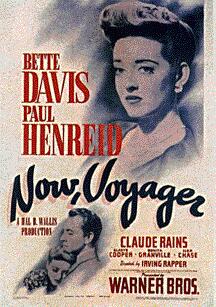
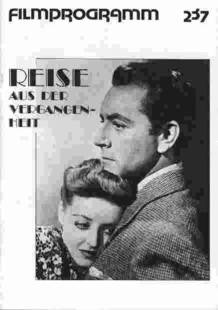
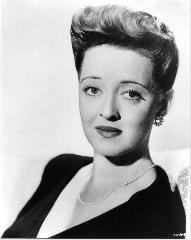
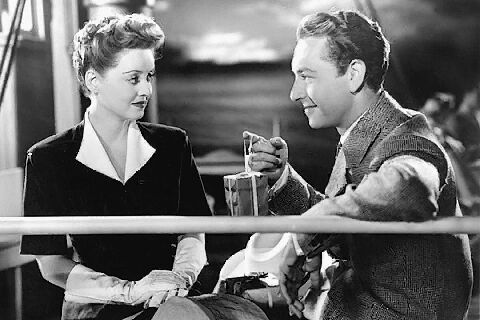
The movies I like best are those that change the way I think about life and about myself. I watched two on video this weekend.
Now, Voyager is a black-and-white from 1942, starring Bette Davis, Paul Henried, Gladys Cooper, and Claude Rains, directed by Irving Rapper, with music by Max Steiner, who won an academy award for this score. To some it may seem an unabashed “tearjerker,” a “woman’s picture.” To me it is a moving story of personal growth leading to a kind of happiness. Bette Davis plays Charlotte Vale, “one of the lesser” Vales of Boston’s upper crust, a spinster who is cruelly repressed by her mother (brilliantly played by Gladys Cooper). With the help of Dr. Jacquith (Claude Rains in an amusing role, vigorously played), a psychiatrist, Charlotte is able to resist her mother’s tyranny. Charlotte gets a makeover (off screen), then, on a cruise to South America, she finds shipboard romance with “Jerry” Durrance (Paul Henreid), a man with a family and broken dreams. Both characters draw strength from this relationship, and ultimately, a kind of partial, less-than-ideal happiness that is common in life but rare in movies. When Jerry asks, “Will you be happy?” Charlotte replies, “Oh, Jerry, don’t let’s ask for the moon. We have the stars.”
Two things in this movie I find personally important. First, Charlotte’s growth, from repressed, unhappy spinster to active, self-motivated and approximately happy spinster is inspiring to me because I have often thought of myself as repressed and unhappy. Unlike Charlotte’s, my repression has always been mostly internal, a feeling of being “not good enough.” Charlotte makes me recognize that I am “good enough,” for a while. I could say that Now, Voyager puts my own life and failings in a perspective I find comforting. Second, Charlotte’s situation at the end of the movie is no one’s dream life, but it suits her and she is content. It’s a persuasive demonstration that one doesn’t need to “have it all”; that life can be meaningful and satisfying without an attractive and loving spouse. This comes as a relief to those of us who think we have few trading cards for the dating game.
Beyond these riches that are personally meaningful to me, there is Bette Davis. Of the stars of the time, no one suffered more attractively and exquisitely on screen than Bette, and in this movie she suffers greatly. Seeing her suffer, one feels an urge to give her a hug.
Smoking cigarettes is a key bit of business in this movie, and as an ex-smoker who quit twenty years before, watching Bette and Paul sparking over a pair of cigarettes was enough to make me look back on the habit with unaccustomed nostalgia.
Cyrano de Bergerac is my hero, and two of the big screen renditions are favorites. Everyone’s Cyrano is brazen—you cannot be Cyrano without glorying in your ridiculous nose. José Ferrer’s Cyrano is brash and tough as whipcord; Gerard Depardieu’s Cyrano is tough and tender. In short, Cyrano de Bergerac, as portrayed by playwright Edmond Rostand, is an inspiration to me, giving me the urge to duel with giants.
Schindler’s List challenges me to do the most with my life that I can. It is a call to seriousness of purpose unlike any other that I know, with the probable exception of Ikiru.
The above are undeniably great movies as well as being personally important to me.
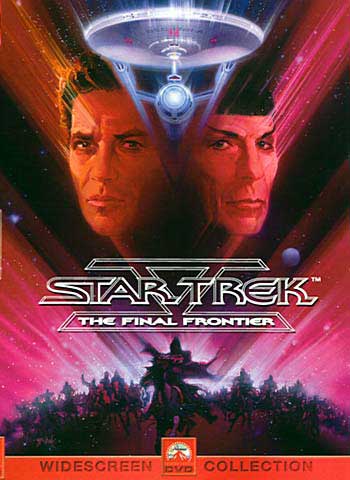

Laurence Luckinbill as Sybok
Now, Voyager viewed 10/10/04
Star Trek V: The Final Frontier viewed 10/9/04
My Movie Reviews
My email address is: alan_nicoll@yahoo.com